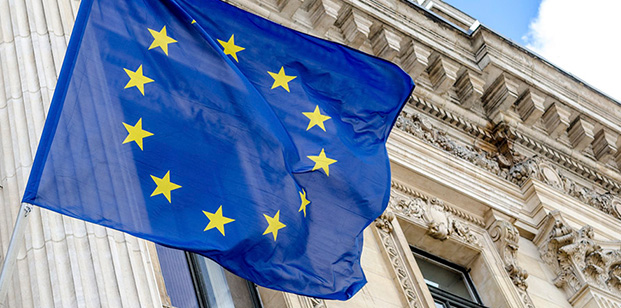The UK’s hung Parliament has raised questions over the future of the Brexit negotiations. Prime Minister Theresa May’s mandate to pursue a “hard” Brexit has been fatally weakened: rather than increasing her majority in the House of Commons, she lost it altogether. The political uncertainty in the UK has raised questions not only about the timetable of Brexit, but the type of Brexit that the UK will pursue.
- Under the current timetable, the UK will leave the EU by March 2019
- The UK is under pressure from the EU to begin negotiations
- No deal would damage both the UK and Europe
The UK’s hung Parliament has raised questions over the future of the Brexit negotiations. Prime Minister Theresa May’s mandate to pursue a “hard” Brexit has been fatally weakened: rather than of increasing her majority in the House of Commons, she lost it altogether, and has been obliged to seek support from the Democratic Unionist Party (DUP) in order to gain a working majority in the House of Commons. An alliance – however informal – with the DUP is likely to muddy the Brexit waters even further, presenting Mrs May with further challenges.
Mrs May began the formal process of quitting the EU in March and, although the UK could request a delay to the timetable, European negotiators appear to see little point in delaying the inevitable: the UK has to leave the EU by March 2019. European Council President Donald Tusk said, “We don’t know when Brexit talks start. We know when they must end.” Elsewhere, European Parliament Brexit negotiator Guy Verhofstadt commented: “We are impatiently waiting for the negotiating position of the UK… the current uncertainty cannot continue.”
“The clock is ticking.”
The EU’s chief Brexit negotiator, Michel Barnier, conceded that “negotiations should start when UK is ready; timetable and EU positions are clear”, but also urged the UK not to waste time, warning, “We should start very quickly because time is passing and we have to work to the timeline fixed by the treaty”. M. Barnier has called for “a British delegation… that is stable, accountable and that has a mandate”, complaining: “I can’t negotiate with myself”. Meanwhile, the British Chambers of Commerce (BCC) wants to see “clear objectives, an agreed starting position, and a strong negotiating team.”
Although Mrs May has said that “no deal is better than a bad deal”, it is widely acknowledged that no deal would damage both the UK and the EU. The Confederation of British Industry (CBI), however, believes that the probability of achieving a good deal for the UK is moving “further away with every exchange across the channel”.
Ultimately, the Brexit process and negotiations will not be steered solely by the UK, but will also be driven by Europe. Against a backdrop of ongoing political uncertainty in the UK – including speculation over the possibility of yet another election – there are still more questions to be answered. In the meantime, the clock is ticking.
A version of this and other articles covering current affairs are available to use in our newsletter builder feature. Click here









